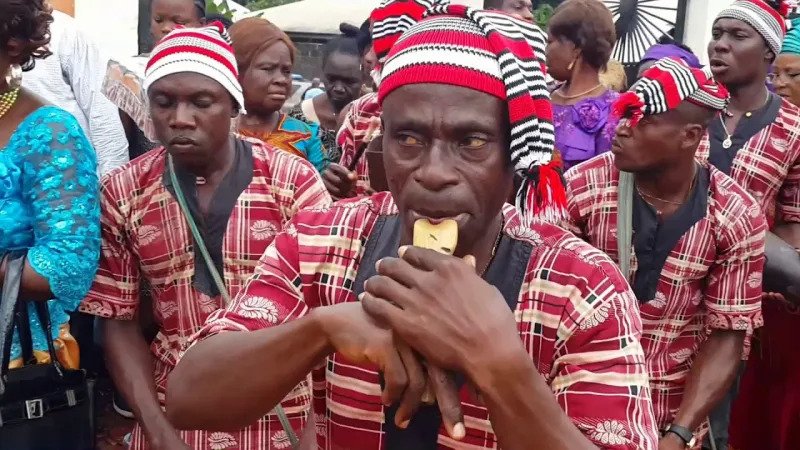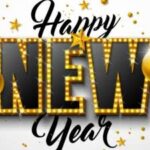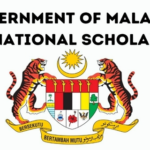History Of Igbo Music In Nigeria

Igbo music is the music of the Igbo people, who are indigenous to the southeastern part of Nigeria. It is a vibrant and diverse tradition that encompasses a wide range of genres, from traditional folk music to contemporary pop and hip hop. Igbo music is characterized by its use of call-and-response vocals, polyrhythms, and percussion instruments such as the djembe, ogene, and gong.
Igbo music is deeply rooted in Igbo culture and is used for a variety of purposes, including religious ceremonies, celebrations, and entertainment. It is also a powerful tool for social commentary and can be used to express a wide range of emotions, from joy and love to anger and protest.
the most popular genres of Igbo music
Highlife: A popular genre of West African music that originated in Ghana in the early 20th century. Highlife is characterized by its use of guitars, horns, and brass instruments.
Nkwa: A traditional Igbo genre of music that is characterized by its use of call-and-response vocals and polyrhythms. Nkwa is often used for religious ceremonies and celebrations.
Akupe: A traditional Igbo genre of music that is characterized by its use of flutes and drums. Akupe is often used for entertainment and to accompany dances.
Bongo Flava: A contemporary Igbo genre of music that is a fusion of highlife, hip hop, and R&B. Bongo Flava is characterized by its use of catchy melodies and danceable rhythms.
Igbo music is a rich and diverse tradition that is an important part of Igbo culture. It is a powerful tool for communication, expression, and celebration, and it continues to evolve and thrive in the 21st century.
Igbo music, a rich and diverse tapestry of sounds, rhythms, and melodies, has been an integral part of Igbo culture for centuries. Its roots can be traced back to ancient times, with musical instruments depicted in Nok culture artifacts dating back to 1500 BC. Igbo music has evolved over time, influenced by both internal and external factors, and continues to play a significant role in Igbo society today.
Early Igbo Music
The earliest forms of Igbo music were primarily functional, serving various purposes in daily life and social events. Work songs, accompanied by rhythmic drumming, energized laborers in the fields and during communal tasks. Melodies and chants were incorporated into rituals and ceremonies, marking significant transitions in life and connecting with the spiritual realm. Igbo music also served as a medium for storytelling, preserving history, and passing on cultural values from generation to generation.
The Emergence of Igbo Highlife
In the early 20th century, Igbo music underwent a significant transformation with the introduction of Western instruments and musical styles. Lagos, a bustling port city in Nigeria, became a hub for cultural exchange, where Igbo musicians encountered brass bands and guitar-based music. This fusion led to the emergence of Igbo highlife, a dynamic genre that incorporated elements of jazz, blues, and traditional Igbo music.
Pioneers like Emeka Maduka and Ezigbo Obiligbo laid the foundation for Igbo highlife, their music gaining popularity across Nigeria and beyond. Igbo highlife featured lively rhythms, soulful melodies, and lyrics that often addressed social and political issues. The genre became a symbol of Igbo identity and cultural pride, captivating audiences with its infectious energy and expressive storytelling.
Evolution and Diversification
Igbo music continued to evolve throughout the 20th century, branching out into various subgenres and incorporating influences from other musical traditions. Igbo gospel music emerged, combining Christian themes with traditional Igbo melodies and rhythms. Igbo funk, inspired by American funk music, infused Igbo highlife with a groovy and danceable sound. Igbo rap, a fusion of rap and Igbo language, emerged in the late 20th century, providing a contemporary platform for social commentary and cultural expression.
Igbo Music Today
Today, Igbo music remains a vibrant and dynamic force, reflecting the diversity and resilience of Igbo culture. Igbo musicians continue to push boundaries and explore new sounds, while also preserving and honoring traditional forms of music. Igbo music festivals, both in Nigeria and abroad, showcase the rich tapestry of Igbo musical traditions, attracting audiences worldwide.
Igbo music’s significance extends beyond mere entertainment; it serves as a powerful tool for cultural preservation, social commentary, and spiritual expression. It is a testament to the creativity and adaptability of the Igbo people, who have continued to shape their musical heritage while embracing new influences and innovations. As Igbo music continues to evolve, it remains a vital part of Igbo identity, connecting generations and fostering a sense of community both within Igbo society and around the world.
Who is the first Igbo highlife musician?
The title of “father of Igbo highlife” is often attributed to Chief Akunwafor Obiligbo (1904-1976), a renowned musician and bandleader from Nteje, Anambra State, Nigeria. He is credited with pioneering the use of the guitar in Igbo music, blending traditional Igbo rhythms and melodies with Western influences to create a unique and captivating sound. Obiligbo’s music was widely popular in the 1940s and 1950s, and his legacy continues to inspire Igbo musicians today.
While Obiligbo is considered a pioneer of Igbo highlife, there were other musicians who were also instrumental in the genre’s development, such as E.C. Arinze and Ekwueme Ubaja. These musicians, along with Obiligbo, helped to establish the foundations of Igbo highlife and paved the way for future generations of Igbo artists.
What is the name of the popular type of music in the Igbo tribe?
The Igbo tribe has a rich and diverse musical tradition, with a variety of popular styles. Here are some of the most well-known genres of Igbo music:
Igbo highlife: This popular genre emerged in the 1920s and is characterized by its upbeat tempo, syncopated rhythms, and use of brass instruments. It is often associated with celebrations and parties.
Ogene: This traditional genre is known for its distinctive call-and-response vocals and use of gongs. It is often performed at funerals and other ceremonial occasions.
Igbo gospel: This genre combines traditional Igbo music with Christian themes. It is a popular style of worship music in many Igbo churches.
Ikorodo: This style of music features a large ensemble of instruments, including drums, gongs, flutes, and vocals. It is often performed at festivals and other community events.
Igbo rap: This genre is a relatively recent development, but it has become increasingly popular in recent years. It combines traditional Igbo rhythms with hip hop beats and lyrics.
These are just a few of the many popular types of Igbo music. Igbo music is a vibrant and dynamic tradition that continues to evolve and adapt to new influences.
What are the musical instrument of Igbo?
Drums: Drums are the most important instruments in Igbo music, and they come in a variety of shapes and sizes. The most common type of drum is the Udu, which is a pot drum made of fired clay. Udu drums are played with the hands, and they can produce a wide range of sounds, from deep bass tones to high-pitched slaps.
Gongs: Gongs are another important type of instrument in Igbo music. The most common type of gong is the Ogene, which is a large, hand-held gong made of iron. Ogene gongs are used to signal important events, such as funerals, weddings, and meetings.
Flutes: Flutes are also an important part of Igbo music. The most common type of flute is the Ọja, which is a wooden flute with five finger holes. Ọja flutes are used to play melodies and solos, and they can produce a wide range of sounds, from sweet and gentle to loud and piercing.
ALSO READ: History Of African Music
Rattles: Rattles are used to add rhythm and excitement to Igbo music. The most common type of rattle is the Ichaka, which is made from a gourd or calabash filled with seeds or pebbles. Ichaka rattles are shaken by hand, and they produce a high-pitched, chattering sound.
Strings: String instruments are not as common in Igbo music as percussion and wind instruments, but they do play a role. The most common type of string instrument is the Ugo, which is a zither made of a long, narrow board with strings stretched over it. Ugos are played with the fingers, and they can produce a variety of sounds, from soft and delicate to loud and vibrant.
What is the Igbo flute called?
The Igbo flute is called the ọja. It is a traditional wooden flute that is an important part of Igbo culture. The ọja is used in a variety of settings, including religious ceremonies, festivals, and celebrations. It is also used to accompany singing and dancing. The ọja is a versatile instrument that can produce a wide range of sounds, from high-pitched and piercing to low and mellow. It is a popular instrument among Igbo people of all ages, and it continues to be an important part of their musical traditions.
What is talking drum called in Igbo?
The talking drum is called Ikoro in Igbo. It is a membranophone, a drum with a membrane stretched over a hollow body. The drum is played with two sticks, one held in each hand. The drummer strikes the drum with the sticks to create a variety of sounds. The Ikoro is used for communication, music, and ceremonies.
Who is the first Igbo rapper?
Determining the exact first Igbo rapper is a matter of debate as hip-hop culture emerged in various parts of Nigeria around the same time. However, Okechukwu Edwards Okeje, popularly known as Mr. Raw or Igbo Raw, is widely recognized as one of the pioneers of Igbo rap. He began his career in the early 2000s and gained prominence for his unique style of rapping in the Igbo language and pidgin English. His songs often addressed social and political issues, resonating with audiences across Nigeria. Mr. Raw’s contributions to Igbo rap helped pave the way for a new generation of Igbo rappers, including Phyno, Zoro, and others.
Who is the best Igbo singer?
Determining the “best” Igbo singer is subjective and depends on individual preferences and musical tastes. However, there are several Igbo singers who are widely considered to be among the greatest, with a significant impact on Igbo music and culture. Here are a few of the most notable:
Chief Stephen Osita Osadebe: Known as the “King of Igbo Highlife,” Osadebe was a prolific singer, songwriter, and bandleader who is credited with popularizing Igbo highlife music around the world. His music is characterized by its intricate rhythms, melodious vocals, and insightful lyrics.
Oliver de Coque: Another pioneer of Igbo highlife music, Oliver de Coque was known for his catchy melodies and energetic stage presence. His music blended traditional Igbo rhythms with elements of jazz and funk, creating a unique and appealing sound.
Bright Chimezie: A versatile musician known for his mastery of various genres, Bright Chimezie has made significant contributions to Igbo music. His songs often address social and political issues, and his fusion of traditional and contemporary sounds has earned him a wide following.
Onyenze Nwa Amobi: A respected singer and songwriter, Onyenze Nwa Amobi is known for his melodious voice and heartfelt lyrics. His music often expresses themes of love, loss, and hope, and he has a loyal fan base in Nigeria and beyond.
Ayaka Ozubulu: A rising star in Igbo music, Ayaka Ozubulu is known for her powerful vocals and captivating stage presence. Her music blends traditional Igbo sounds with modern influences, and she has been praised for her ability to connect with audiences.
These are just a few of the many talented Igbo singers who have enriched the music scene with their unique contributions. Ultimately, the “best” Igbo singer is a matter of personal preference, but these artists have all left an indelible mark on Igbo music and culture.
In Conclusion:
the Igbo music scene is a vibrant and diverse landscape, with countless talented singers who have made significant contributions. Whether it is the soulful melodies of Flavour, the energetic performances of Phyno, or the powerful vocals of Ayaka Ozubulu, each artist brings their own unique flavor to the genre. Regardless of personal preference, it is clear that Igbo music is a rich and cherished part of Nigerian culture, and these singers have played a crucial role in its preservation and evolution.







